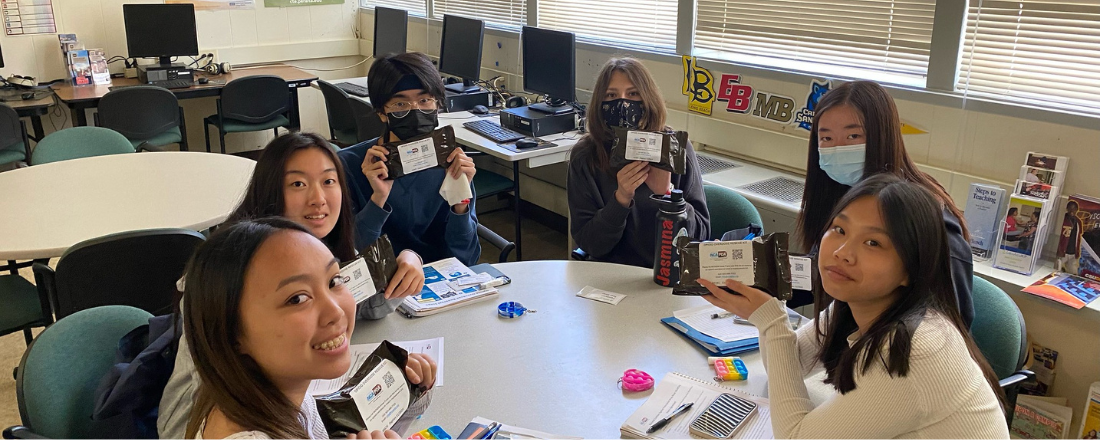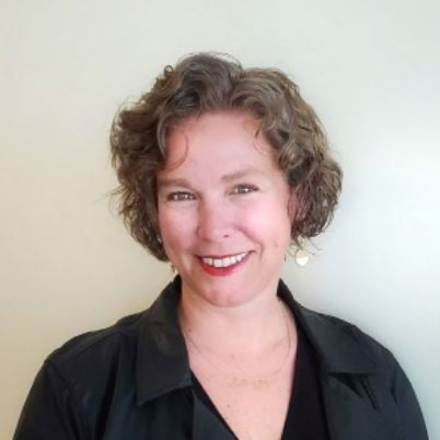
In the News
Programs in San Francisco Offer Overdose Response Training for Youth and Community Members to Help Save Lives
- San Francisco Public Press

A longer version of this article by Sylvie Sturm — “SF Students, SRO Residents Train to Reverse Drug Overdoses” — was originally published by the San Francisco Public Press and adapted from its “Civic” podcast. Listen to the audio player at the bottom of this page to hear the full story.
“Experts in overdose prevention say many teen and adult lives could be saved if more people know how to identify and respond to overdoses. In San Francisco, an array of programs are providing overdose response training to teenagers, college and graduate school students, and residents in neighborhoods that have a high rate of overdose deaths.
Fentanyl-related teen overdose deaths nearly tripled nationally from 2019 to 2021, according to the Centers for Disease Control and Prevention. And two-thirds of those who died had someone nearby who did not provide an overdose response.
Now, some San Francisco high school students are trying to help by volunteering for a program that trains them to recognize drug abuse and reverse overdoses.
Among them is 17-year-old Burton High School student Jennifer Mendoza.
“I think it’s really important, especially in our school and at my age, that we should be teaching our students how this is performed,” Mendoza said.
The program, called Public Health Youth Corps, is run by FACES for the Future Coalition, which offers underprivileged youth a pathway toward a career in health care. It includes a healthcare innovation called mental health first aid, according to coalition Deputy Director Brooke Briggance.
“It’s in some ways kind of like CPR,” Briggance said.
Addressing psychological health is a key part of mitigating drug-related deaths among teenagers since more than 40% of teens who died of overdose from 2019 to 2021 had a history of mental health conditions, according to the CDC.
Through the program, students learn the early signs of various mental health challenges, how to approach conversations with individuals who may be suffering, and how to follow a trajectory of de-escalation in the event of worsening stages such as a panic attack, non-suicidal self-injury or thoughts of suicide.
Briggance said the students who volunteer for the training are passionate about mental health and substance use disorder because they routinely encounter these challenges in their personal lives.

Many of them have seen overdose on the streets, in the neighborhoods in which they’re walking to school or hanging out with their friends,” she said. “Some of them have lost family members to overdose.Brooke Briggance
Deputy Director, FACES for the Future Coalition
Mendoza said if she had learned these skills earlier, she might have been able to help a friend whom she fears may have died of an overdose.
“We’re not really sure where they are right now but we have a feeling that they’re not here because they did a lot of drugs,” she said. “I feel like if I was more educated at that age, I could have helped him or found help.”
Some local university students are also getting involved in overdose reversal training. This year, a new California state Senate bill required that all community colleges and universities provide opioid overdose education and distribute Naloxone. Maia Scarpetta and Rachel Murro, both PhD students at UCSF, organized drug reversal training for the UCSF community by enlisting the help of National Harm Reduction Coalition’s Drug Overdose Prevention and Education Project — aka the DOPE Project — a 20-year-old harm reduction organization that has been featured in CDC reports for its innovative research and practices in community-based naloxone distribution.
“I don’t think that anybody living in SF is not in the presence of drug use, whether it’s your friends, your family, your neighbors, folks that you interact with on a daily basis,” Murro said.
“And I think a lot of us kind of intellectualize it and focus on it from a research perspective, or we’ll learn all the facts we can, but it’s like, what would we do if somebody was actually standing in front of us and needed our help? Which is not out of the realm of possibility at all.”
Click on the link below to read the full article.
In Episode 6 of the podcast series, “The Grassroots Effort to Save Lives: San Francisco and the Overdose Crisis,” find out why students are participating in trainings to learn how to reverse overdoses. Listen to the episode below:
Originally published by San Francisco Public Press
More Updates
Work With Us
You change the world. We do the rest. Explore fiscal sponsorship at PHI.
Support Us
Together, we can accelerate our response to public health’s most critical issues.
Find Employment
Begin your career at the Public Health Institute.



